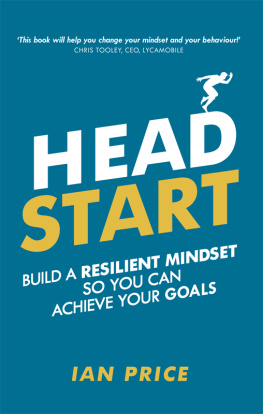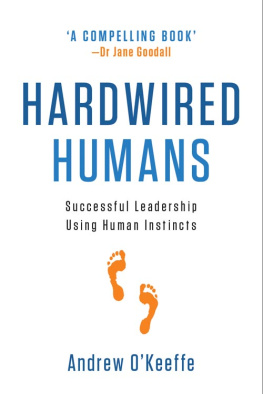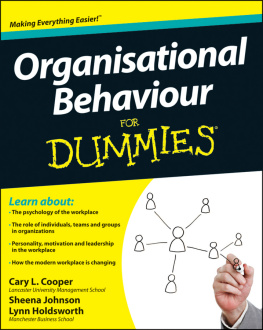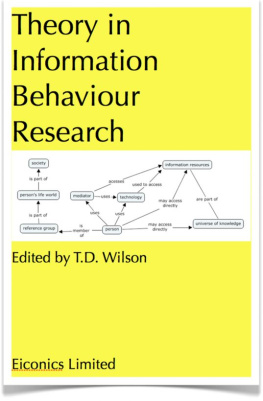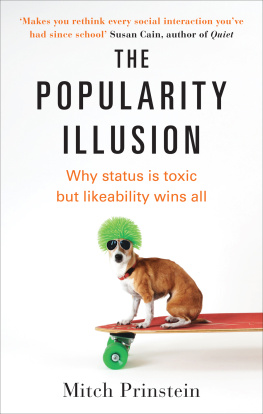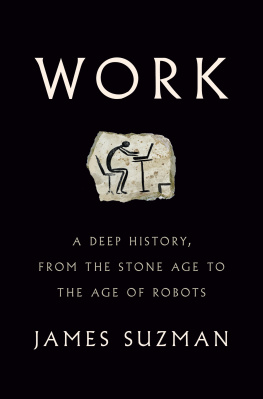For Iyabo
The author would like to thank the following people for their help, guidance and support in writing this book: My literary agent Diane Banks; Nathan Zeldes; Professor Cary Cooper; Philip Sheldrake; Carl French; Mike Trenouth; David Sales; Angus Porter; Ivor Kellock; Polly Courtney and Paul Morland.
A four-day week, and then
three days fun.
It is the summer of 1953. Winston Churchill, Britains Prime Minister, is in bed at Chequers recovering from a stroke and being examined by his doctor, Lord Moran. Churchill, who thought deeply about the technological advances brought about by science, shared his vision of an end to the Cold War. If it came off, he said to Moran, and there was disarmament, production might be doubled and we might be able to give the working man what he has never had leisure. A four-day week, and then three days fun.i
This aspiration of giving the worker a three-day weekend may seem a fantasy today but was not so farfetched at the time. Some fifty years earlier, workers in manufacturing industries had only recently ceased the practice of working a full day on Saturday. The change was a result of the establishment of Trade Unions pushing back against eighteen-hour shifts and the technological innovations that drove improvements in productivity. It was the Edwardian practice of allowing workers Saturday afternoons off work that led to the boom in professional football clubs with legions of paying fans. So, in the 1950s -an age of continuing scientific advancement - it did not seem unrealistic to pursue a vision of increased leisure.
Fast-forward another fifty years from Churchills premiership and against a backdrop of accelerating and dizzying technological advancement, here is a pen-portrait of his twenty-first century successor written by Iain Martin in The Daily Telegraph. Describing the weekend preparation for Gordon Browns visit to the US, Martin writes:
By Sunday Team Brown will be suffering from severe sleep deprivation, taking phone calls and emails from the PM around the clock. Most likely, the advisers will have an agreed text signed off only as they board the plane for Washington. And only then will Brown decide that he does not like the prepared speech. At that point he will, I confidently predict, start bashing out a new one on a laptop. Head down, his hands a blur, as they have been thousands of times down the years, this is how Brown always works.ii
While this is an imagined scene rather than a documentary description, it is an elegant summary of the leadership style that is evident in both the political and corporate classes of the twenty-first century rich in technology but poor in effectiveness. The frenetic blur of activity straddling a weekend, the meddling in detail, the frenzy of digital communication all raise questions about the leaders sense of perspective and the ability to delegate. The same behaviours are just as evident in the corporate world. My family are used to not seeing me during the week, says one CEO interviewed in The Secrets of CEOs by Steve Tappin and Andrew Cave. They see me at weekends but not all the time or every weekend. I cant remember my boys growing up, says another.iii As this book will show, it is not just the CEOs of organisations that are affected, since the impact of this way of working trickles down the hierarchy. In many ways, however, the CEOs are far better equipped to cope than more junior employees.
So how is it that, after decades of technological and economic advancement we have not only failed to deliver Churchills vision of a leisure society but, for many of us, we have gone backwards with even the two-day weekend being eroded by work?
This book examines why we work the way we do and asks the question whether or not our heightened levels of activity make us more productive and effective in our jobs or happier in our lives. Churchills primary concern was for the working man in an era when it was not unheard of for a paternalistic board of company directors to sleep off a big lunch after a board meeting while a retainer wheeled round the drinks trolley. Another Prime Minister of the era, Macmillan, said in a radio interview that one of the aspects of being Prime Minister that he most liked was that he found so much time to read Victorian fiction. Today, in the post-industrial age, there is evidence that the imbalance has become reversed, with managers and leaders now working harder than anyone else. A 2001 study by the Economic and Social Research Council entitled Willing Slaves: Employment in Britain in the 21st Century found that the long hours culture is more embedded for managers, those in professional jobs, and people with higher level qualifications.iv Similarly, the TUC has, through its Labour Force Survey, identified a marked increase in unpaid overtime among senior managers; with an average 12 hours a week of unpaid overtime, the 2006 survey saw them overtake teachers as the category of professionals with the greatest percentage of unpaid overtime. Why should it be the case that the managers and leaders towards the top of an organisation appear to be working hardest?
In addition to the fact that bosses are working long hours themselves, there is the impact of this trend on others. They are, often unwittingly, contributing to a culture in which the people that work for them also work long hours. Because they are so frenetically busy, they are often failing to find enough time to lead and manage. Delegation risks becoming a lost art as leaders fire from the hip the moment each successive message hits their BlackBerry. Not only are their people working harder, they are in all likelihood becoming progressively less effective and productive, which reduces their satisfaction in their work. And worst of all, they may be experiencing stress, something that can have a tangible physical and mental impact on not only their lives but those of their family members.
It appears that we have fallen into the habit of hyper-activity. We constantly check emails, send texts and make mobile phone calls even when we are supposed to be socially engaged with others such as joining partners for a meal in a restaurant or reading our children a bed-time story. Activity is regarded as a good state and there is an unspoken stigma surrounding passive silence. Why is it, when asked if we are busy, we feel compelled to answer affirmatively?
While an entire industry has emerged offering managers life coaching, this book focuses on the work side of the equation. Drawing on the new science of evolutionary psychology, it suggests that advances in communications technology have paradoxically led us to work harder and less effectively than ever.
We start with an analysis of the problem and an understanding of the impact on working effectiveness and quality of life. I will then argue that it is the collision of two environmental factors that has caused working life to become increasingly frenetic and ineffective. The first of these is the technology paradox in which advances in communications technology have caused us to work harder and longer and yet less effectively than ever before; the second is the nature of human psychology which yearns for status and gossip in a world in which the traditional trappings of hierarchy have all but vanished. The combination of these two forces has led to an environment in which activity is regarded as an indicator of status, and in which the traditional Protestant work ethic has become distorted to such an extent that aggression is regarded as a pre-requisite for business success.
The book then offers practical solutions as to how some of these problems can be addressed both at a personal and an organisational level. Chapter 6 tackles the technology theme by confronting the technology paradox and offers practical tips to tame the technology beast. Chapter 7 looks at focus and how you can achieve more by taking on less. Chapter 8 examines the impact of the leaders behaviour on the rest of the organisation and how it can be coached into eradicating ineffective working practices. The following chapter covers people; the importance of having the right people in your organisation, the power of delegation and the need for effective team-working. Finally, Chapter 10 touches upon life outside the office and the personal dimension.
Next page

